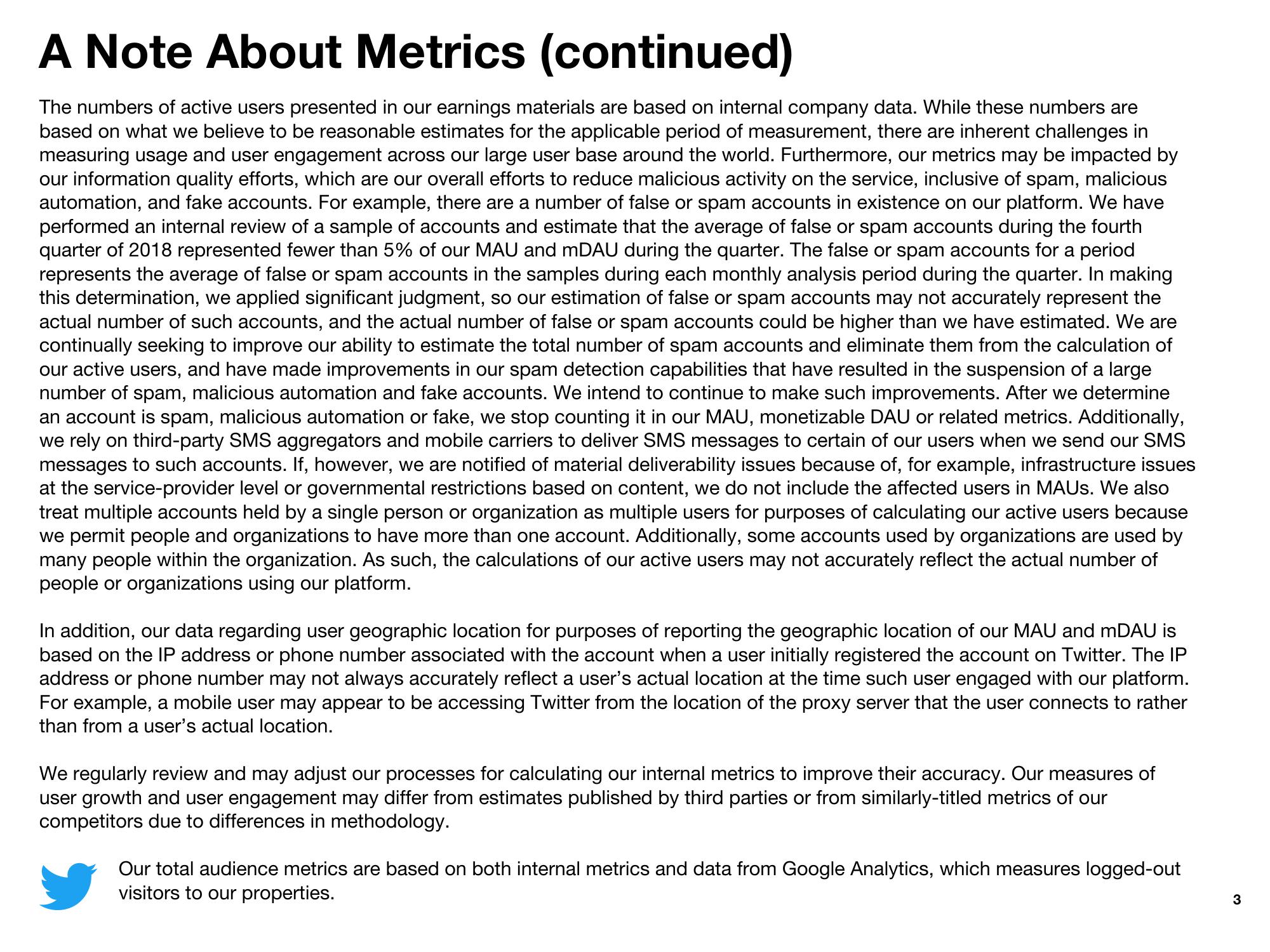Twitter Results Presentation Deck
A Note About Metrics (continued)
The numbers of active users presented in our earnings materials are based on internal company data. While these numbers are
based on what we believe to be reasonable estimates for the applicable period of measurement, there are inherent challenges in
measuring usage and user engagement across our large user base around the world. Furthermore, our metrics may be impacted by
our information quality efforts, which are our overall efforts to reduce malicious activity on the service, inclusive of spam, malicious
automation, and fake accounts. For example, there are a number of false or spam accounts in existence on our platform. We have
performed an internal review of a sample of accounts and estimate that the average of false or spam accounts during the fourth
quarter of 2018 represented fewer than 5% of our MAU and mDAU during the quarter. The false or spam accounts for a period
represents the average of false or spam accounts in the samples during each monthly analysis period during the quarter. In making
this determination, we applied significant judgment, so our estimation of false or spam accounts may not accurately represent the
actual number of such accounts, and the actual number of false or spam accounts could be higher than we have estimated. We are
continually seeking to improve our ability to estimate the total number of spam accounts and eliminate them from the calculation of
our active users, and have made improvements in our spam detection capabilities that have resulted in the suspension of a large
number of spam, malicious automation and fake accounts. We intend to continue to make such improvements. After we determine
an account is spam, malicious automation or fake, we stop counting it in our MAU, monetizable DAU or related metrics. Additionally,
we rely on third-party SMS aggregators and mobile carriers to deliver SMS messages to certain of our users when we send our SMS
messages to such accounts. If, however, we are notified of material deliverability issues because of, for example, infrastructure issues
at the service-provider level or governmental restrictions based on content, we do not include the affected users in MAUS. We also
treat multiple accounts held by a single person or organization as multiple users for purposes of calculating our active users because
we permit people and organizations to have more than one account. Additionally, some accounts used by organizations are used by
many people within the organization. As such, the calculations of our active users may not accurately reflect the actual number of
people or organizations using our platform.
In addition, our data regarding user geographic location for purposes of reporting the geographic location of our MAU and mDAU is
based on the IP address or phone number associated with the account when a user initially registered the account on Twitter. The IP
address or phone number may not always accurately reflect a user's actual location at the time such user engaged with our platform.
For example, a mobile user may appear to be accessing Twitter from the location of the proxy server that the user connects to rather
than from a user's actual location.
We regularly review and may adjust our processes for calculating our internal metrics to improve their accuracy. Our measures of
user growth and user engagement may differ from estimates published by third parties or from similarly-titled metrics of our
competitors due to differences in methodology.
Our total audience metrics are based on both internal metrics and data from Google Analytics, which measures logged-out
visitors to our properties.
3View entire presentation